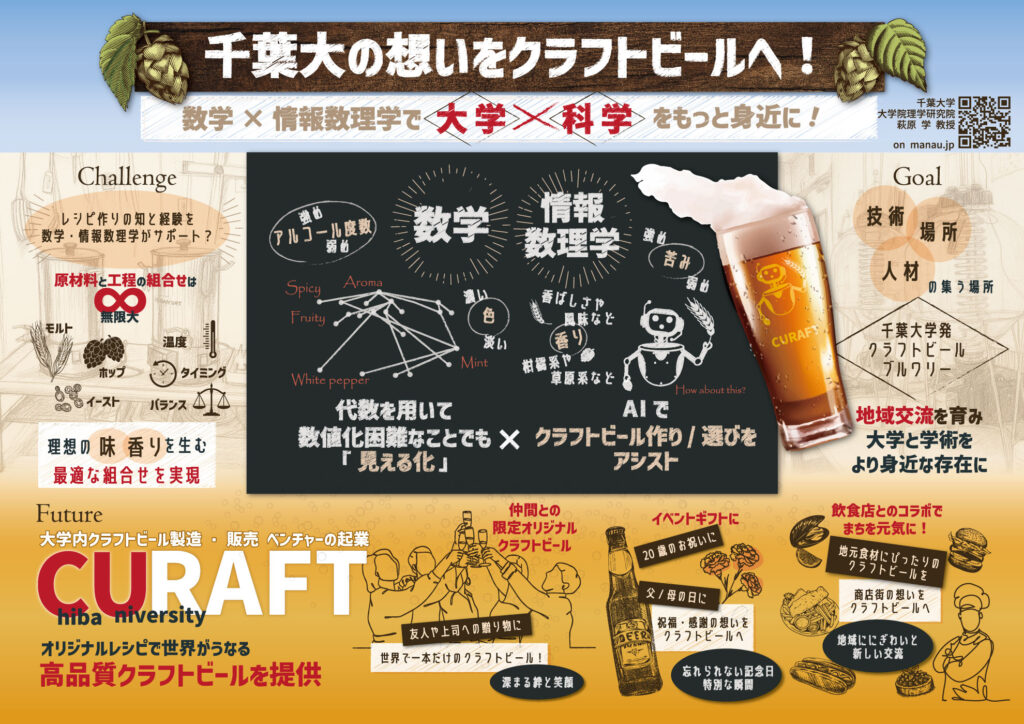事務手続きで、主要な業績をまとめる機会がありました。
後日、使いまわしやすいように転載しておくことにしました。
Achievements in Research, Professional Activities, and International Personnel Exchanges
Achievement 1: Creation of a New Research Area: Quantum Deletion Error-Correcting Codes
In 2020, the PI, together with a student Ayumu Nakayama, created and introduced a completely new research area in quantum information theory by constructing the first-ever quantum error-correcting code capable of correcting deletion errors. [H1] Prior to this, known quantum error-correcting codes were built upon classical coding theory frameworks. However, the code proposed by the PI and Nakayama deviated from these frameworks, representing a novel conceptual leap.
This work strongly indicated the necessity of developing a new theoretical foundation unique to quantum information theory—independent from classical information theory. This act of creation, rather than extension, has opened up an unexplored domain now recognized as “quantum deletion codes.”
[H1] The First Quantum Error-Correcting Code for Single Deletion Errors, Ayumu Nakayama, M. Hagiwara, IEICE Communications Express, Vol. 9, No. 4, pp. 100–104, Jan. 2020.
[H2] Quantum Multi Deletion Codes Derived From Quantum Reed-Solomon Codes, M. Hagiwara, Proc. of 2025 IEEE International Symposium on Information Theory 2025/6.
[H3] Introduction to Quantum Deletion Error-Correcting Codes, M. Hagiwara, IEICE Transactions on Fundamentals of Electronics, Communications and Computer Sciences E108.A(3) 363-375 2025/3.
[H4] A Four-Qubits Code that is a Quantum Deletion Error-Correcting Code with the Optimal Length, M. Hagiwara, A. Nakayama, 2020 IEEE International Symposium on Information Theory (ISIT) 1870-1874 2020/6
Achievement 2: Development of Quantum LDPC Codes Based on Classical Modern Codes
Classical “modern codes” refer to LDPC codes and their variants or descendants. CSS quantum codes constructed from pairs of classical codes have recently attracted attention for fault-tolerant quantum computing. However, such CSS constructions require specific conditions on the pair of classical codes, and it is nontrivial to find suitable examples.
The PI was the first to construct a quantum quasi-cyclic LDPC (QC-LDPC) code in 2007 [H5] and a quantum spatially coupled LDPC (SC-LDPC) code in 2012 [H6], both based on well-known classical modern codes. These works proposed construction methods for such pairs and contributed significantly to the theory of quantum LDPC codes.
These contributions are recognized in the Error Correction Zoo, an authoritative database in coding theory:
* Error Correction Zoo: Quasi-cyclic quantum code,
https://errorcorrectionzoo.org/c/quantum_quasi_cyclic
* Error Correction Zoo: Quantum spatially coupled (SC-QLDPC) code,
https://errorcorrectionzoo.org/c/sc_qldpc
[H5] Quantum Quasi-Cyclic LDPC Codes, Manabu Hagiwara, Hideki Imai, Proc. IEEE ISIT, pp. 806–810, 2007.
[H6] Spatially Coupled Quasi-Cyclic Quantum LDPC Codes, Manabu Hagiwara, Kenta Kasai, Hideki Imai, Kohichi Sakaniwa, Proc. IEEE ISIT, pp. 638–642, 2011.
Achievement 3: Award-Winning Research in Coding Theory
The PI received the IEICE 2024 Best Paper Award, the most prestigious award given to only one paper among approximately 1,000 publications in that year, for a survey article summarizing trends in quantum deletion error-correcting codes [H3].
Additionally, the pioneering paper [H1] was awarded the Top Downloaded Letter Award (June 2020) by IEICE Communications Express, and another related work [H7] received the same award in April 2021.
In the domain of classical deletion codes, the PI also received the IEICE 2024 Paper Award [H8], which recognizes the top 12 papers in the same annual pool of ~1,000.
[H7] The Four Qubits Deletion Code is the First Quantum Insertion Code, Manabu Hagiwara, IEICE Communications Express, Vol. 10, No. 5, pp. 243–247, May 2021.
[H8] Double-Stack Erasure-Filled Channel and Level-By-Level Error Correction, Hironori Uchikawa and Manabu Hagiwara, IEICE Transactions on Fundamentals of Electronics, Communications and Computer Sciences E108.A(3) 376-383 2025/3
Achievement 4: International Research Collaboration through Sabbaticals
The PI conducted sabbatical research at the University of Hawai‘i at Mānoa during two periods (Feb. 2011 – Mar. 2012 and Aug. 2022 – July 2023), under the mentorship of Prof. J.B. Nation. Their collaboration focused on QC-LDPC codes and resulted in multiple co-authored papers.
They co-organized a session on coding theory at the American Mathematical Society meeting.
In October 2023, the PI visited NTU and NUS in Singapore on sabbatical. His host at NTU was Dr. Kiah Han Mao, the Singapore-side PI of the current proposal. At NUS, he continued a joint research collaboration with Dr. Van Khu Vu, leading to several co-authored publications.
In 2024, the PI co-organized the Japan–Singapore Informatics Exchange Workshop (JSIEW 2024) to foster student research exchange between the two countries.
These collaborations continue via online and in-person interactions, forming a robust foundation for the proposed joint research.
Achievement 5: Leadership in International Symposium Organization
The PI has a strong track record of organizing international symposia. He served as the General Chair of ISITA 2020 (International Symposium on Information Theory and Its Applications), a major biennial conference organized by IEICE. Despite the challenges posed by the COVID-19 pandemic, the event was held successfully online with participants from over 10 countries. The PI was the youngest General Chair in the history of ISITA.
He also co-organized:
- A session on coding theory at the AMS meeting (with Prof. Nation)
- The JSIEW 2024 mentioned above
- A Special Session on Combinatorics, Representation Theory, and Coding Theory at Joint Mathematics Meetings 2020 (the largest U.S. math conference), together with Prof. Richard Green (University of Colorado)

